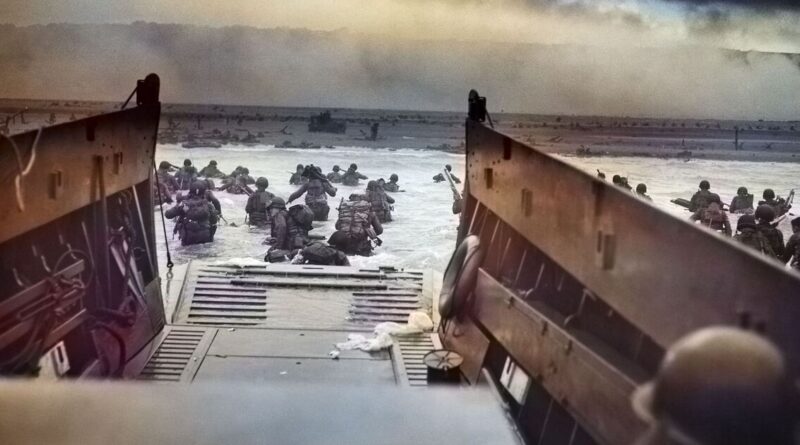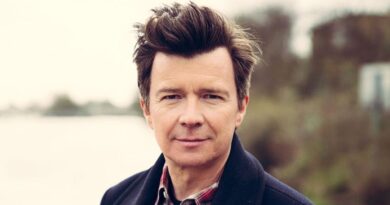Top 5 first person World War Two books you need to read | Books | Entertainment
Much has been documented on the Second World War, which devastated Europe and the world between 1939 and 1945.
From films to historical accounts, there is a wealth of information available to those wanting to understand the conflict.
But for those wanting to hear about it from the people who were there, first-hand accounts are the ultimate source of information.
Below are five of the greatest Second World War memoirs, told by the heroes who fought in the conflict.

5. The Forgotten Highlander – Alistair Urquhart
Alistair Urquhart was 19 when he was conscripted into the British Army, just as his father, a veteran of the Somme, had been a generation earlier.
His account tells a side of the conflict often overlooked in popular culture. Captured in Singapore and held captive by the Japanese, he was forced to work as a slave on the infamous Burma railway, a task which claimed the lives of so many due to the intense nature of the work and conditions the men were kept in.
His survival of the “death railway” was not the end of his miraculous close shaves with death, with Urquhart going on to be sunk by a US torpedo whilst aboard a cargo ship bound for Japan and being forced to work in a mine near Nagasaki, just 10 miles away from the impact of the atomic bomb.
Urquhart’s account was published in 2010. Throughout the intervening years, he internalised the trauma he had endured, as many like him did, so as to not “upset our wives and families, and ourselves, with unsettling tales of unimaginable torments.”
In The Forgotten Highlander, he tells of his anger at the lack of acceptance by Japan for the war crimes committed, as was seen in Germany in the post-war years.
(Image: Amazon:Abacus/Getty)

4. A Helmet for a Pillow – Robert Leckie
The account of Robert Leckie was made famous in the HBO series The Pacific, with Leckie portrayed as one of three central characters throughout the series.
Leckie’s account gives a vivid insight into the horrors of island warfare. His skill with a pen, honed through his post-war years as a reporter, transports the reader to the various Pacific islands where he and his comrades fought.
He recounts in vivid detail his mental struggle with facing the prospect of death and takes the reader from bootcamp to the Battle of Guadalcanal and Melbourne to Cape Gloucester.
As an enlisted man, Leckie is able to give the perspective of young private soldiers, forced to fight and die in response to the attack on Pearl Harbour and he spares no detail in doing so.
(Image: Amazon:Ebury PRess/Getty)

3. Beyond Band of Brothers – Richard Winters
Dick Winters is one of the best-known Second World War commanders, thanks in part to the HBO series Band of Brothers – but also thanks to his incredible story and heroism.
Winters became the commander of Easy Company during his time in France and his account details the preparation for war and the tough standards required to earn the right to be a paratrooper.
Winters recalls the confusion of D-Day, the brief liberation of Eindhoven as part of Operation Market Garden, the horrors of the Battle of the Bulge, the inhumanity of SS death camps and the luxury of Hitler’s alpine retreat.
Winter’s memoirs provide a glimpse into the pressure of leading men in battle and the difficulty of making decisions that ultimately cost people their lives.
(Image: Amazon:Dutter Caliber/Getty)

2. Arnhem Doctor – Stuart Mawson
Arnhem Doctor’s release tells the story of warfare through the eyes of a non-combatant.
Stuart Mawson was a doctor in the Royal Army Medical Corp (RAMC) and he was attached to the British Airborne who dropped into Nazi-occupied Holland during Operation Market Garden.
Medical personnel on the battlefield have a unique role to play. Under the Geneva Convention, they are non-combatants, meaning that they play no role in offensive operations and instead only use weapons in defence of themselves and their patients.
The site of the main hospital set up by medics passed between German and British lines, but medical personnel stayed put, treating to the wounded regardless of nationality. As the Allies were forced to withdraw, Mawson, like many members of the RAMC, stayed with the wounded, fully cognisant of the fact that to do so would lead to their capture.
Mawson’s account is a gripping recollection of the war from those whose primary purpose is to save rather than take lives. It details the courage of those prepared to place themselves in peril in order to help others and is one of the most fascinating accounts of the entire conflict.
(Image: Amazon:Spellmount/Getty)

1. With the Old Breed – Eugene Sledge
Eugene Sledge’s account is another made famous by The Pacific and, whilst it describes the same conflict as Robert Leckie’s, it does so in an entirely different way.
The account traces Sledge’s journey from keen, enthusiastic marine to battle-hardened and traumatised soldier in a small period of time.
Centred on the end of the Pacific conflict, Leckie takes the reader into some of the fiercest fighting of the 20th century and makes no attempt to hide the anger and hatred that coursed through his body as he fought.
In an account that can be felt by veterans of any conflict, Sledge is open about the battle fought on his return to the US, in a way that many veterans of the time felt unable to.
An afterword by his son brings home the impact the war had for decades on people too young to fight in it, as he explains the fits of anger his father was liable to and the hatred for Japan that last for many years. A true masterpiece.
(Image: Amazon:Ebury Press/Getty)




